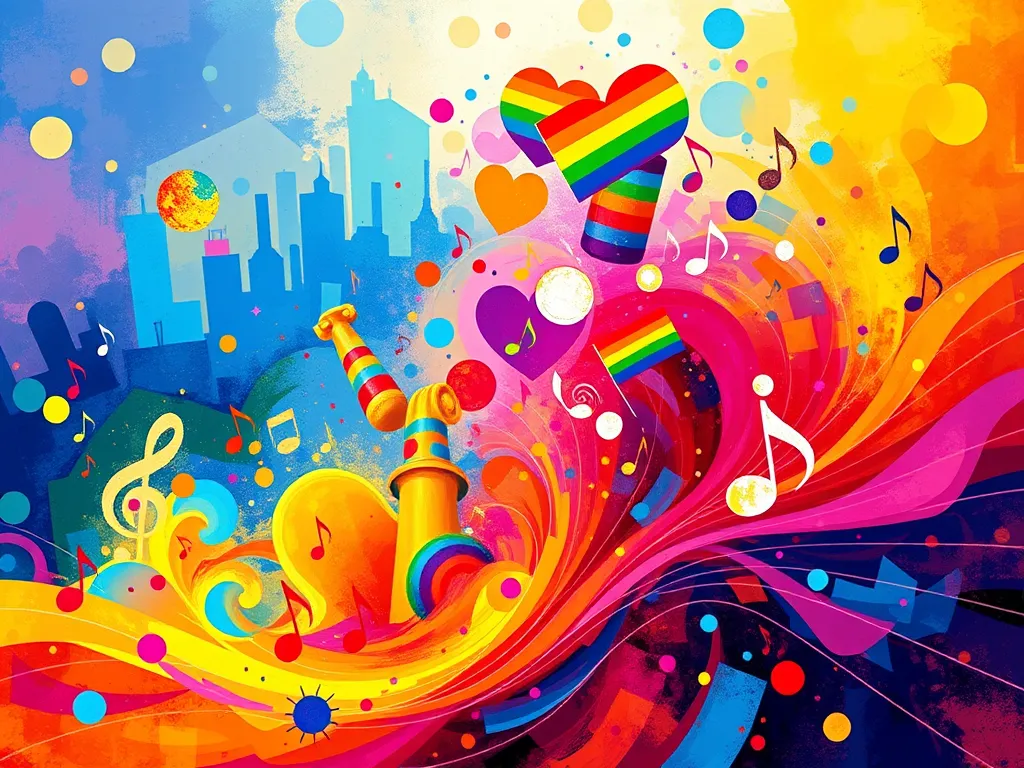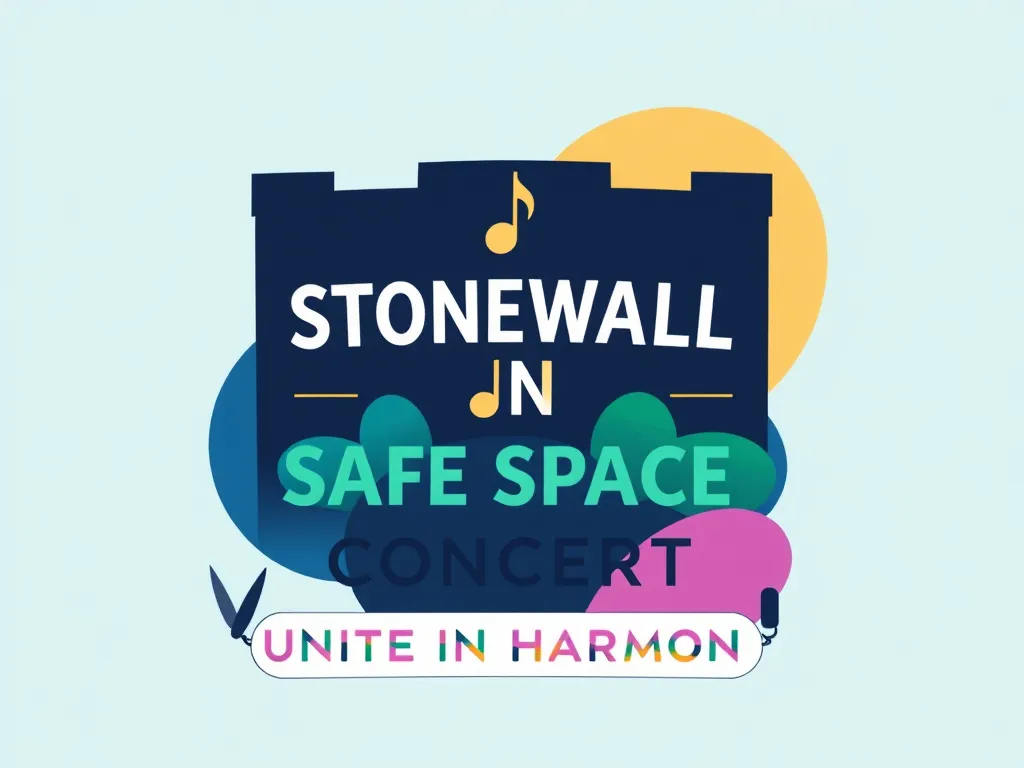Empowering Change: Supporting LGBTQ+ Rights Through Music

Supporting LGBTQ+ Rights Through Music
Supporting LGBTQ+ Rights Through Music has been a powerful avenue for expression and activism. Throughout history, music has served as a key platform for marginalized voices, allowing LGBTQ+ individuals to share their stories, struggles, and triumphs. From the anthems of the 70s to modern pop hits, music has continuously rallied support for LGBTQ+ rights and has forged a sense of community among listeners.
The relationship between music and LGBTQ+ activism is rooted deeply in cultural history. Many artists have used their platforms to challenge societal norms and advocate for equality. Songs with themes of love, acceptance, and resistance have resonated with both the LGBTQ+ community and allies, amplifying important messages that promote inclusivity and social justice. Supporting LGBTQ+ Rights Through Music encourages unity and inspires new generations to stand up against discrimination.
Moreover, the evolution of music genres has played a crucial role in shaping LGBTQ+ narratives. From the disco beats of the 80s that celebrated freedom and self-expression to today's diverse and inclusive sounds, music has reflected the struggles and victories of the LGBTQ+ movement. Supporting LGBTQ+ Rights Through Music not only celebrates past achievements but also pushes for continuous progress in the fight for equal rights and representation.
In contemporary society, music continues to be a vital tool for fostering LGBTQ+ visibility. Artists from various backgrounds increasingly share their personal experiences through their work, creating an authentic connection with their audiences. Supporting LGBTQ+ Rights Through Music is not just about entertainment; it’s about uplifting voices that need to be heard and advocating for a world where everyone can love freely and openly.
As we explore the intersection of music and LGBTQ+ rights, it becomes clear that the harmonious blend of rhythms and activism can drive significant social change. By supporting LGBTQ+ artists and music that focuses on these themes, fans and allies can play an active role in promoting equality and a more inclusive society for all.
History of LGBTQ+ Music Movements
The history of LGBTQ+ music movements reveals the impact that music has had on advancing LGBTQ+ rights. During the Civil Rights Movement of the 1960s, songs became anthems for change, with artists like Billie Holiday and Nina Simone highlighting social injustices. In the 1970s and 80s, the rise of disco culture created safe spaces for LGBTQ+ individuals to express their identities, exemplified by tracks from artists such as Sylvester and the Village People.
Iconic LGBTQ+ musicians who paved the way for acceptance include Elton John, Freddie Mercury, and George Michael. These artists challenged the status quo, addressing their sexuality in ways that resonated with fans across the globe. Their legacy continues to influence and inspire new generations of LGBTQ+ artists and advocates, reminding us of the power of visibility in the fight for rights and recognition.
Artists around the world are increasingly recognized for their role in Supporting LGBTQ+ Rights Through Music, fostering inclusivity and acceptance.
The evolution of LGBTQ+ themes in music over decades can be observed through changing lyrics, increased representation in music videos, and the emergence of LGBTQ+ genres. From the subtle hints of queerness in earlier works to explicit displays of love and identity in contemporary music, the journey has been transformative. This evolution reflects broader societal changes and the growing acceptance of diverse sexual orientations and gender identities.
LGBTQ+ Representation in Modern Music
Today, diverse artists are amplifying LGBTQ+ voices in mainstream music. Artists like Sam Smith, Lil Nas X, and Janelle Monáe use their platforms to address issues such as gender identity, sexual orientation, and mental health, encouraging fans to embrace their true selves. This representation is crucial in normalizing LGBTQ+ experiences and fostering a more inclusive environment within the music industry.
Mainstream music increasingly reflects LGBTQ+ culture, integrating themes of love and acceptance in lyrics and narratives. Collaborations across diverse genres highlight the importance of intersectionality within the LGBTQ+ community, showcasing various identities and experiences through music. By representing LGBTQ+ culture, mainstream artists contribute to a greater understanding and acceptance among broader audiences.
LGBTQ+ music festivals play a significant role in representation, providing safe spaces for artists and fans alike. Events like Pride festivals, music celebrations, and queer-focused gatherings showcase emerging LGBTQ+ talent and foster a sense of belonging. These festivals not only entertain but also serve as platforms for advocacy and education, promoting LGBTQ+ rights within the music community and beyond.
The Role of Music in Activism
Songs that have become anthems for LGBTQ+ rights often embody the spirit of resistance and hope. Tracks such as "Born This Way" by Lady Gaga and "True Colors" by Cyndi Lauper resonate deeply, empowering listeners to embrace their identities. Such songs inspire activism and encourage individuals to stand up for their rights and the rights of others.
Collaborations between artists and LGBTQ+ organizations have amplified the impact of music in activism. Initiatives like “Music for LGBTQ+ Rights” have united musicians and advocates to raise awareness and funds for important causes. These partnerships show the power of music to galvanize support and mobilize communities toward social change.
Fundraising through music for LGBTQ+ causes has gained momentum, with benefit concerts and albums dedicated to supporting various initiatives. Events like the “LGBTQ+ Music Festival” raise funds for advocacy groups and provide financial support for essential resources, showing how music can play an active role in driving change.
Music Genres and LGBTQ+ Identity
The influence of pop culture on LGBTQ+ identity is profound, with music serving as both a reflection and shaper of cultural norms. Pop music, in particular, has a significant impact on how society views LGBTQ+ issues. With catchy hooks and relatable lyrics, pop songs often challenge stereotypes and push for greater acceptance within mainstream culture.
Queer hip-hop represents an exploration of LGBTQ+ identity, pushing boundaries in a traditionally heteronormative genre. Artists like Tyler, The Creator and Cupcakke use their music to discuss issues of sexuality and societal norms, broadening the conversation within hip-hop and creating spaces for greater acceptance.
Classical music compositions reflecting LGBTQ+ themes have also emerged, showcasing the diversity of musical genres. Composers like John Corigliano and Jennifer Higdon weave LGBTQ+ narratives into their works, proving that classical music can also resonate with LGBTQ+ experiences and contribute to the ongoing dialogue about identity and acceptance.
The Future of Music and LGBTQ+ Advocacy
Trends in music supporting LGBTQ+ rights continue to evolve, with greater representation of artists from diverse backgrounds. The impact of digital platforms allows for a wider reach, enabling LGBTQ+ artists to connect with audiences globally. As music continues to serve as a vehicle for advocacy, it will undoubtedly shape future conversations on equality and representation.
The rise of LGBTQ+ artists across various genres reflects a growing acceptance and appreciation for diverse voices within the music industry. From pop to country to rock, artists are increasingly celebrated for their authenticity, paving the way for more inclusive narratives that resonate with audiences worldwide.
Music education and LGBTQ+ awareness initiatives are vital for fostering a future that values inclusivity and acceptance. By incorporating LGBTQ+ studies into music curriculums and promoting awareness through community events, we can inspire future generations to champion equality through the power of music.
